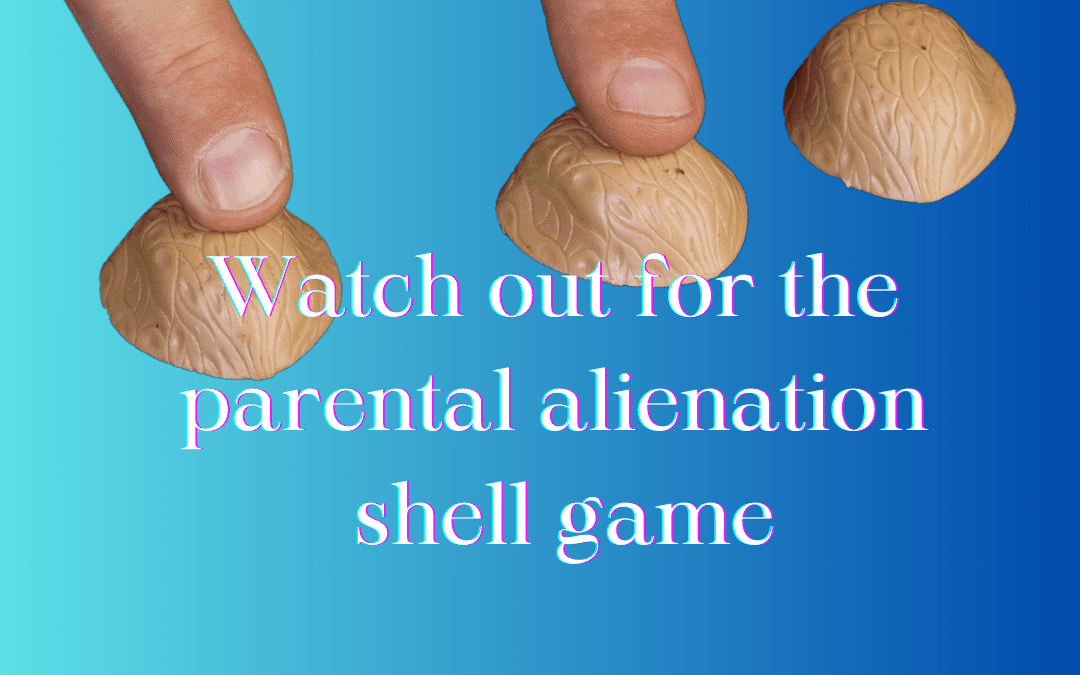If you're in a custody battle with an abusive, toxic ex, here's one shell game you need to avoid.
I'm talking about when the abusive parent accuses their victim of “parental alienation”. This can happen in all relationships, whether the abuser is male or female, and in same-sex relationships too.
But when the parent bringing the accusations of alienation is the father and the parent alleging abuse is the mother, it's not so simple. Judges frequently tend to ignore evidence of intimate partner violence. It doesn't matter if the father is absent, litigates aggressively, abuses alcohol, or was violent toward the mother. In these cases, judges often see the mother as an alienator.
This is a systematic issue that exists in many countries. It's exacerbated by the existence of a “parental alienation” cottage industry —self-appointed experts who prey on parents in high-conflict custody battles.
That's why I tell my clients not to assume they're immune to alienation allegations if their ex is clearly and evidentially abusive towards them and their children.
Using an anchor statement to head off parental alienation allegations
Although avoiding alienation allegations isn't a slam dunk, there are some things you can do to stay ahead of them. One of these is to create an anchor statement.
Your anchor statement is about you – and not about the other party. It keeps you on a firm foundation of truth, authenticity, and strategy. It helps you stay grounded, focused, and consistent in court, so you can make your voice heard.
It's a concise, compelling narrative that tells your side of the story without getting lost in chaos and accusations.
Remember, family court isn't just about presenting evidence. It's also about telling your story in a way that resonates with the judge.
Your anchor statement is your guiding light, ensuring you remain true to yourself and your child's best interests.
Contact me if you want my template for creating your own anchor statement.

